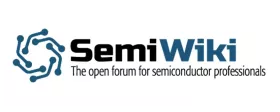Will Google Design Server SoCs?
Google is search, of course, but it is also OS (Android), systems (Glass) and increasingly, maybe, hardware. Rumors are swirling that through careful acquisitions and focused internal development, Google is set to make its own server SoCs.
Google’s Larry Page has stated that they are in the hardware business. They’ve been making the server motherboards for their datacenters, and Google Glass includes a Google-branded CPU board. The Google job listings include a number of openings under the category of Hardware, but they are spread over PCB, CAD, mechanical, test, etc. They want engineers to design electronics for ground station and flight avionics, automotive systems, electricity delivery controls, Google Fiber, and other projects. There is no doubt that Google is designing hardware, but there looks to be little in the job listings to indicate they are ramping up a processor design team.
What about acquisitions? They snapped up one semiconductor company, processor maker Agnilux, in 2010 (which was founded by folks from PA Semi after it was bought by Apple in 2008). They also bought PeakStream, a startup who made tools to program multicore processors, in 2007. However, they didn’t buy any assets from Calxeda, a maker of ARM-based server SoCs that went under in December 2013.
To read the full article, click here
Related Semiconductor IP
- LPDDR6/5X/5 PHY V2 - Intel 18A-P
- ML-KEM Key Encapsulation & ML-DSA Digital Signature Engine
- MIPI SoundWire I3S Peripheral IP
- ML-DSA Digital Signature Engine
- P1619 / 802.1ae (MACSec) GCM/XTS/CBC-AES Core
Related Blogs
- Apple Will NOT Manufacture SoCs at Intel
- Will more ASIC design companies cooperate with Apple and Google?
- Design IP for Automotive SoCs: Trends and Solutions
- The design of the NoC is key to the success of large, high-performance compute SoCs
Latest Blogs
- Rethinking Edge AI Interconnects: Why Multi-Protocol Is the New Standard
- Tidying Up: FIPS-Compliant Secure Zeroization for OTP
- Accelerating Your Development: Simplify SoC I/O with a Single Multi-Protocol SerDes IP
- Why What Where DIFI and the new version 1.3
- Accelerating PCIe Gen6 L0p Verification for AI & HPC Designs using Synopsys VIP
